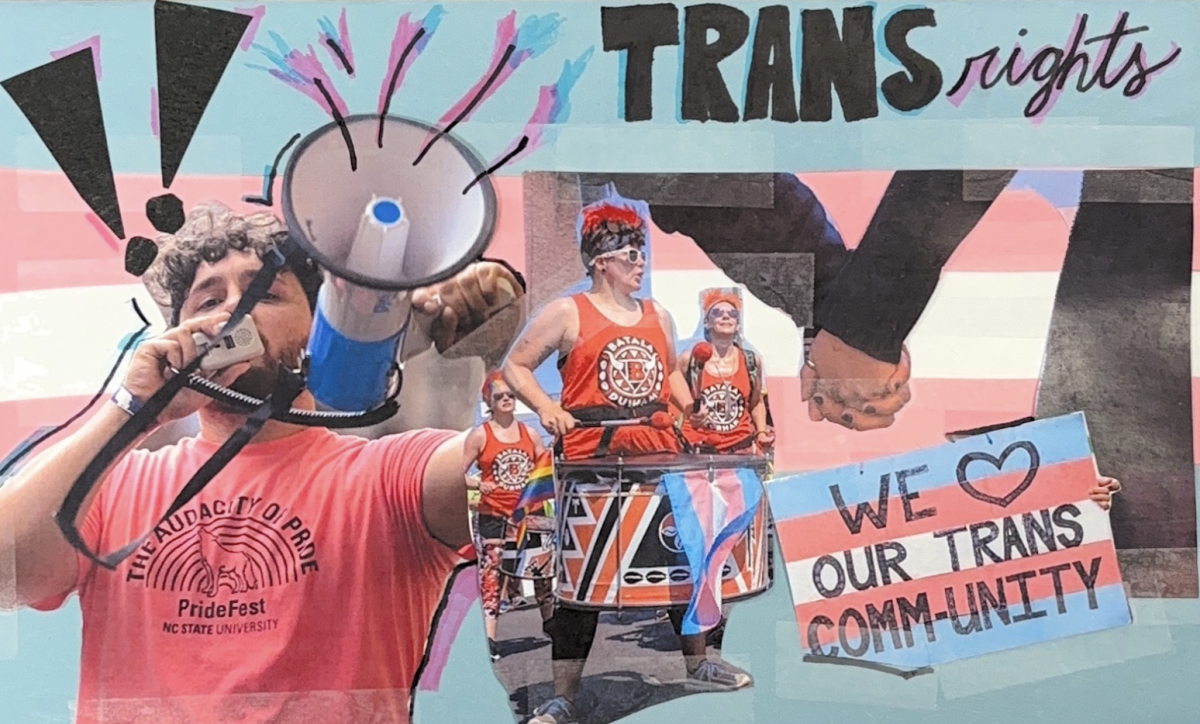Between hormones, changing names and coming out, gender transitioning can feel nearly impossible, particularly when entering a new environment like college.
Leio Ibarra, a second-year studying science, technology and society, said it was difficult to figure out how LGBTQ-friendly NC State would be before attending.
“I knew I wanted to transition in college,” Ibarra said. “So I did a lot of looking into how trans-friendly NC State was and … just how trans-friendly a lot of colleges were. But I feel like there wasn’t a lot of data, so I just kind of went in with a blind eye.”
Being transgender at NC State comes with a number of responsibilities that cisgender students will never face, including changing name and pronouns in MyPack portal, informing teachers of the change and making sure that roll call sheets have the correct information.
Ibarra said despite fixing names in MyPack portal, roll call sheets did not reflect this.
“I use my preferred name all the time,” Ibarra said. “I also use my preferred pronouns, but I do remember one time in class, there was a list of everyone’s name and pronouns, and it’s just kind of weird because it had my birth name, but also my preferred name right next to it. And it was like a roll sheet that everybody signs, so it kind of inadvertently was outing me.”
Along with birth name-related issues with attendance, students like Ibarra found the same issues with employment as well.
“For legal things, my employers know my birth name,” Ibarra said. “Which does kind of suck because I didn’t get the option to tell them more. I found out that they know already.”
The “what-ifs” that accompany coming out as trans at work are also concerns that keep students from changing their names in the first place.
“My biggest worry going into this is, ‘Are they going to look at my pronouns and think that I’m going to be a source of trouble?,’ ‘Am I going to be the “uptight trans person”?,’” Ibarra said. “But that seems to be the stereotype, and so I applied for the job, I got it, I’ve spent almost two years there, and I still haven’t come out yet.”
Others have different experiences. Noah Edwards, a first-year in exploratory studies, said he had little issues feeling comfortable at NC State due to his appearance.
“I know I look pretty traditionally feminine,” Edwards said. “No one’s giving me any weird looks or none has questioned it.”
But it’s not as easy for everyone.
“I know a lot of people don’t change their name, their Pack photo, or put their preferred name through Pack Portal because they don’t want their parents to see it,” Edwards said. “I wish that was something that could be solved. I know a lot of people who are like, ‘If I want my professor to call me my name, I have to email them, and my professor has like 600 students, so they probably won’t see it, or they’ll probably forget.’ And that is an issue. I wish there was a solution for that.”
Gender transitioning alone is difficult, especially in college. However, there are resources on campus that can help students get through this process and reassure them they’re not alone.
Edwards said having support from T-Files, a student group through the Pride Center that gives a safe space to transgender, non-binary, gender non-conforming and gender questioning students to affirm their identities and build community, was important to his experience at NC State.
“It’s really nice to know there’s like a community of trans people at State,” Edwards said. “The community has been really supportive. I’ve been to meetings. … It’s nice to be like any person with a group of people like you. I’ve never had that before. I’m from a super small town, so it’s nice to have a community I feel welcomed on campus.”














